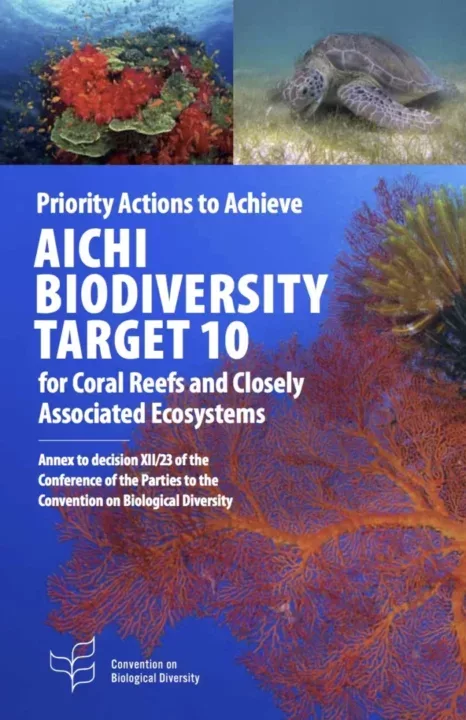The Secretariat of the Convention on Biological Diversity (CBD) has released a report, titled ‘Priority Actions to Achieve Aichi Biodiversity Target 10 for Coral Reefs and Closely Associated Ecosystems.’ By 2015, Aichi Target 10 aims to minimize anthropogenic pressures on coral reefs and other vulnerable ecosystems impacted by climate change or ocean acidification, to maintain their integrity and function.
Coral reefs and associated ecosystems, such as mangroves and seagrasses, support marine biodiversity around the world and contribute socio-economic benefits, such as serving as nursery habitats for fish species, stabilizing coastal and nearshore areas from erosion and storm surges, and supporting livelihoods, according to the report. Despite this provision of goods and services, coral reefs, mangroves and seagrasses are “one of the most stressed ecosystems globally and amongst the most vulnerable to climate change.” To reverse negative trends on progress towards Target 10, the 12th Conference of the Parties (COP 12) to the CBD adopted a set of priority actions, which are presented in the report.
The report focuses on five priority actions: 1) reducing the impacts of multiple stressors; 2) enhancing the resilience of coral reefs and associated ecosystems through ecosystem-based adaptation (EbA); 3) maintaining sustainable livelihoods and food security in reef-dependent coastal communities and providing alternative livelihoods; 4) increasing local capacity to forecast and proactively plan for climate risks and associated effects; 5) and enhancing international and regional cooperation to support national implementation of priority actions. The report recommends Parties to the CBD develop national coral reef action strategies and other relevant policies or programmes in close coordination with national and subnational governments and indigenous and local communities.
The report also encourages Parties to take actions to, inter alia: strengthen existing sectoral and cross-sectoral management to address local stressors; manage land and sea-based pollution; increase the spatial coverage and effectiveness of marine and coastal protected areas; manage coastal development to ensure the health and resilience of coral reef ecosystems; identify and apply measures to improve the adaptive capacity of coral reef-based socio-ecological systems; and promote activities related to capacity building, knowledge sharing, sustainable finance and research and monitoring. For each of these recommended actions, the report provides multiple examples of activities that Parties can undertake.
